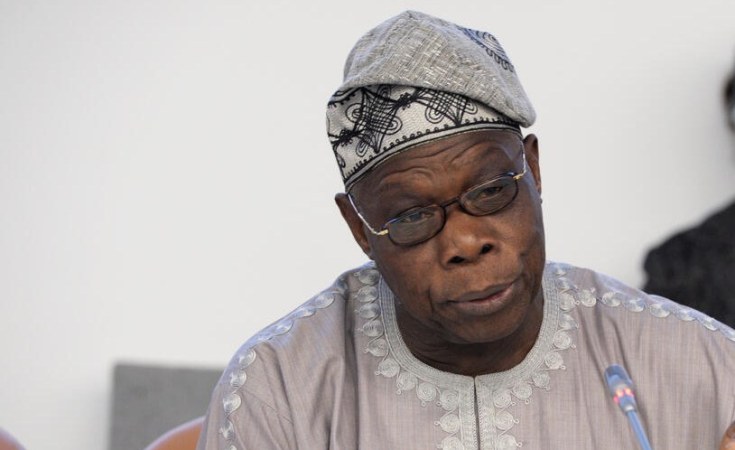The AU-facilitated peace talk is holding in South Africa after several failed attempts to get the warring parties to dialogue.
Nigeria's former president and African Union (AU) envoy for the Horn of Africa, Olusegun Obasanjo, on Tuesday led a peace talk between the Government of Ethiopia and the Tigray People's Liberation Front.
Mr Obasanjo's role as a mediator had been criticised earlier on grounds of a perceived close relationship with the Ethiopian prime minister.
The AU-facilitated peace talk is holding in South Africa after several failed attempts to get the warring parties to dialogue.
In a statement announcing the peace talk, AU Commission Chairperson Moussa Mahamat said it was part of an ongoing AU-led process to support the parties to find a political solution to the conflict in the Tigray region of Ethiopia.
He thanked President Cyril Ramaphosa for accepting to host the talks "in the spirit of pan-African solidarity to find African solutions to African problems."
The talks are facilitated by Olusegun Obasanjo; Uhuru Kenyatta, former president of Kenya, and Phumzile Mlambo-Ngcuka, former deputy president of South Africa.
Observing the process are representatives from the Intergovernmental Authority on Development (IGAD), the UN and the US.
"The chairperson is further encouraged by the early demonstration of commitment to peace by the parties and to seek a lasting political solution to the conflict in the supreme interest of Ethiopia," the statement read.
According to The East African, the talks were supposed to start on Monday but for the failure of the Ethiopian government delegation to arrive on time.
The Deputy Prime Minister and Minister of Foreign Affairs, Demeke Mekonnen, who chairs the Ethiopian government delegation did not travel to South Africa along with his team on Monday night.
President Cyril Ramaphosa's spokesperson, Vincent Magwenya, said the talks will last until 30 October.
Crisis in Ethiopia
For two years, the government of Ethiopia and forces in its northern Tigray region have been at loggerheads, throwing the country into political and economic instability
Eritrean soldiers are also fighting in Tigray for the Ethiopian government. All sides have been accused of atrocities.
Several factors are said to be contributing to the seemingly unending crisis.
According to the UN Refugees agency (UNHCR), Ethiopia is the third largest refugee-hosting country in Africa, home to over 924,000 refugees and asylum seekers -- mainly from South Sudan, Somalia and Eritrea.
The ongoing conflict killed thousands and internally displaced millions of Ethiopians. An estimated 59,000 people fled Ethiopia to find refuge in eastern Sudan.
Millions of Ethiopians are still in desperate need of humanitarian aid and protection. An estimated 9 million people across Ethiopia's conflict-stricken regions of Tigray, Afar and Amhara lack access to adequate food.
In Tigray, nearly 40 per cent of the population is suffering from a lack of food. In addition to severe food insecurity, gender-based violence has increased significantly. Also, women and children lack access to proper healthcare, social welfare and justice services, the UN has said.
As the conflict continues in the Tigray region, international NGOs and aid groups face difficulties in delivering critical humanitarian aid and vital services. A shortage of fuel, supplies and cash has forced several aid groups to reduce or cancel distributions of food, water and medicine.
Chiamaka Okafor is a reporter at Premium Times in partnership with Report for the World, which matches local newsrooms with talented emerging journalists to report on under-covered issues around the globe.


